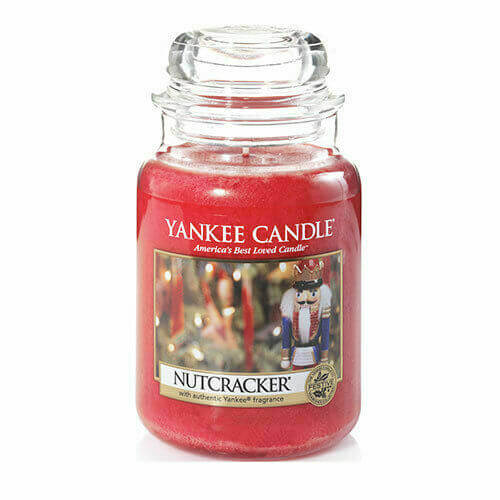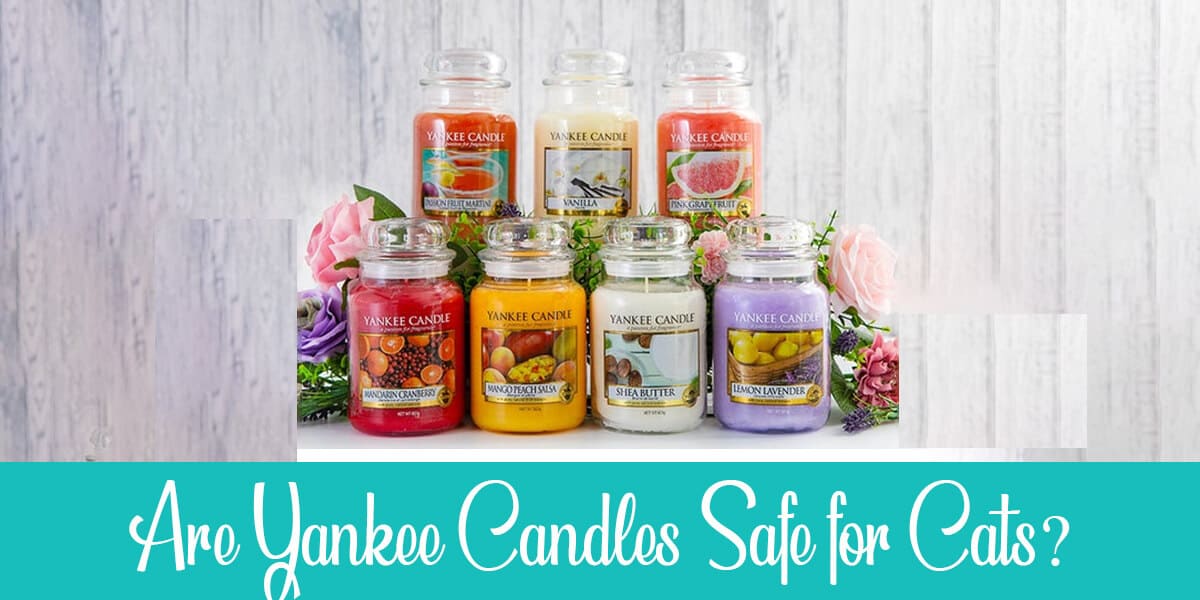Raise your hand if you occasionally light a scented candle to freshen up the smell of your living room, use it alongside a relaxing bath for some “me” time, or even resort to it as a last-minute Christmas gift for your aunt. Scented candles are gaining a lot of popularity, and rightfully so!
However, we, as pet owners, have to take into consideration the safety and wellbeing of our fur babies. Lighting a Yankee Candle might be a daily ritual for some of us cat owners. So we can’t help but wonder, “Are Yankee Candles safe for cats?” Let’s find out!
Table of Contents
Are Yankee Candles Safe for Cats?
Apart from the fire hazard when using an open flame indoors around such curious creatures, burning Yankee Candles can pose some other health risks for cats. The varieties made from paraffin wax can cause breathing issues when burned, and some of their scents containing essential oils can be outright toxic. But their soy and vegetable-based wax varieties are considered safer.
What Are Yankee Candles Made Of?
All scented candles have three main components: wax, wick, and fragrance. Here, we’ll break down each one of them.
The Wax
The largest portion of the candle is made of wax. Most candles, scented or otherwise, are made of paraffin wax; a byproduct of the petroleum industry.
Paraffin wax is the final product after crude oil refinement; the stuff that remains at the bottom of the barrel. It’s then refined in its own right and bleached to be used in other industries.
Some Yankee Candles are made using soy wax or vegetable-based wax. These types of wax are made from soybean, sunflower, or palm oil that has been hydrogenated to make its melting point higher. Then, other chemicals are added to it to make it harder.
The Wick
The wick, which is the filament that burns the candle wax, is usually made of cotton. And Yankee Candle’s website states that their wicks are made of cotton or 100% natural fibers.
Wicks were once stiffened using lead, a highly toxic substance. But as of 2003, the U.S. has banned all use of lead as a candle wick stiffener. Copper wire is sometimes used instead.
The Fragrance
Some Yankee Candles are scented using artificial fragrances, and some using natural essential oils.
It’s worth noting that U.S. law allows the use of the word “fragrance” for about 4,000 different chemicals used for that purpose.
Of course, not all of them are toxic or dangerous to human and pet health, but some of them are.
Also Read:
– Why Is My Cat Losing Tail Tip Hair?
– Cat Pee Smells Like Burnt Rubber, Why?
– Is it Normal to Clearly See My Cat’s Heart Beats?
– Why Does My Cat Have Black Spots on its Tongue?
Are Candles Dangerous to My Cat?

All cat owners know that felines are inquisitive creatures. They like to walk around, climb on furniture and even knock things over if they feel like it. This means that an open flame situation isn’t really ideal.
Cats can burn themselves trying to “catch” the flame with their paws. Their fur and whiskers can get scorched if they walk too close to a candle. And most dangerously, they can knock the lit candle over, causing a house fire.
Even if your cat is incredibly well-behaved, there are some dangerous aspects to lighting a scented candle inside.
Burning paraffin wax can cause the accumulation of gasses and soot in the air, especially when it’s in a room with inadequate ventilation, which causes some cats to suffer from asthma attacks.
Cats are also more sensitive to smells than us. This is why some scents tend to repel them. And some essential oils that are safe for humans are unsafe for pets, such as citrus, cinnamon, pine, peppermint, juniper, thyme, and clove.
I Can Never Use a Yankee Candle Then, Right?
Some pet owners prefer to use candles overtly marketed as pet-friendly to deodorize their place. However, if you have a specific favorite from Yankee Candle, you can take a few steps to ensure your cat doesn’t get hurt because of it.
First and foremost, keep the lit candle away from the cat’s reach. Just put it somewhere you know your cat can’t get to even if they tried. You can also put the candle inside a bowl of water so that if it does get knocked over, the water will put it out.
Burn the candle in a well-ventilated room, but make sure there’s no wind draft nearby. Drafts can cause candles to flicker and burn incompletely, which produces a lot of black soot that lingers in the air.
Avoid scents with essential oils or fragrances that are toxic to cats. Some sensitive cats will leave the room completely if they don’t like the scent you’re using. Take that as a cue to change it in the future.
Lastly, you can opt for the safer coconut wax, beeswax, soy wax, and vegetable-based wax candles. Yankee Candle offers the latter two in their range.
Frequently Asked Questions
Are essential oil diffusers a better option for my cat?
Not really. Essential oils are toxic to cats whether through inhalation, ingestion, or skin contact.
A reed or plugin diffuser has a more diluted effect, but essential oil nebulizers or ultrasonic diffusers have a more dangerous effect on cats than scented candles.
What other brands of candles can I use?
Unfortunately, other big-name brands such as Bath and Body Works and The Body Shop offer candles that are mainly made of or with paraffin wax. And as we discussed earlier, it has its problems with pets.
You can opt for other brands that make pet-safe scented candles.
How do I know if my cat is suffering from asthma?
According to cats.org.uk, feline asthma presents much like human asthma. The signs and symptoms include:
- A recurring cough
- Wheezing
- Labored breathing occurring suddenly without warning
- Increased rate and effort of breathing
Final Thoughts
“Are Yankee Candles safe for cats?” should be an easy enough question to answer, but unfortunately, due to under-regulated industry standards, pet safety isn’t always ensured.
Your duty as a pet parent is to be discerning and make the choices that help your pet live a long, healthy life, even if that means burning a pet-friendly candle instead of your usual Yankee Candle.

I’ve been living with cats since 2008 and I can confidently say I have more feline friends than humans lol. I currently live with 5 cats in different life stages; two of them are less than one year old, one is 2-ish years old and the oldest two are 9-ish years old. I’ve developed a strong bond with cats over the years and I’m eager to share my experience through this blog. You can learn more about my cats here.



